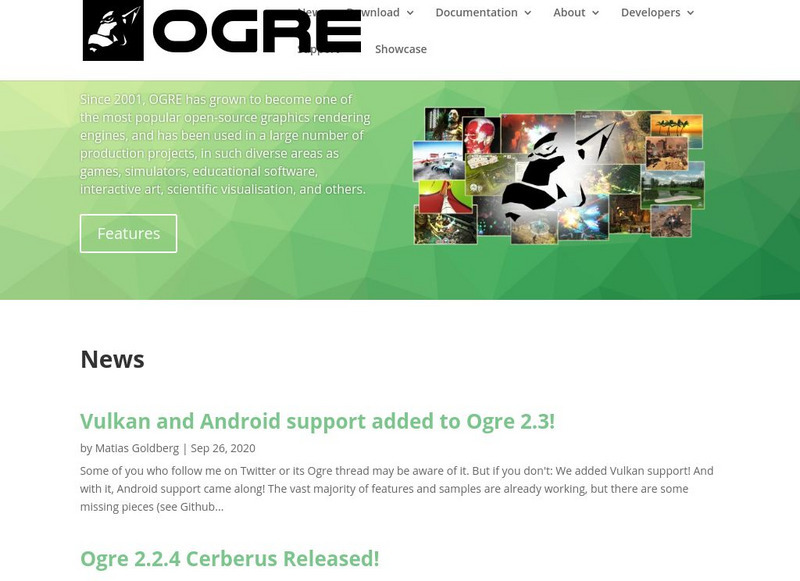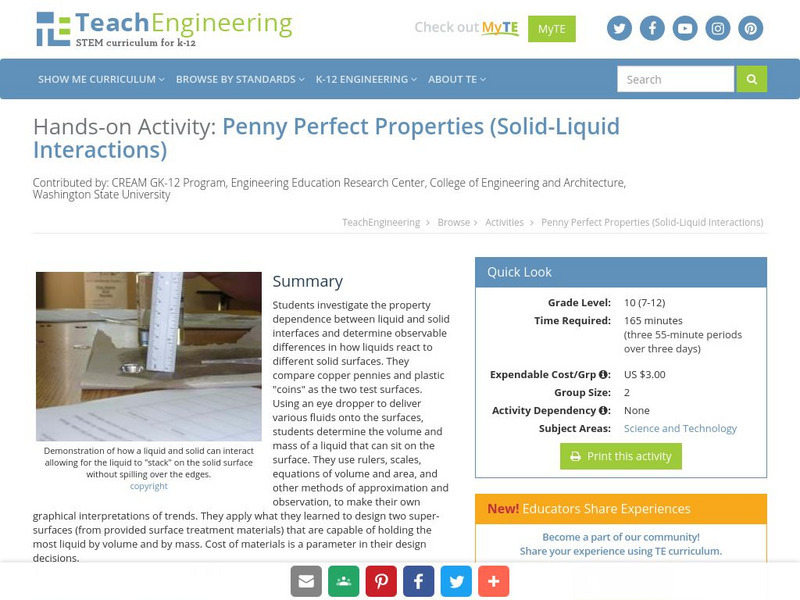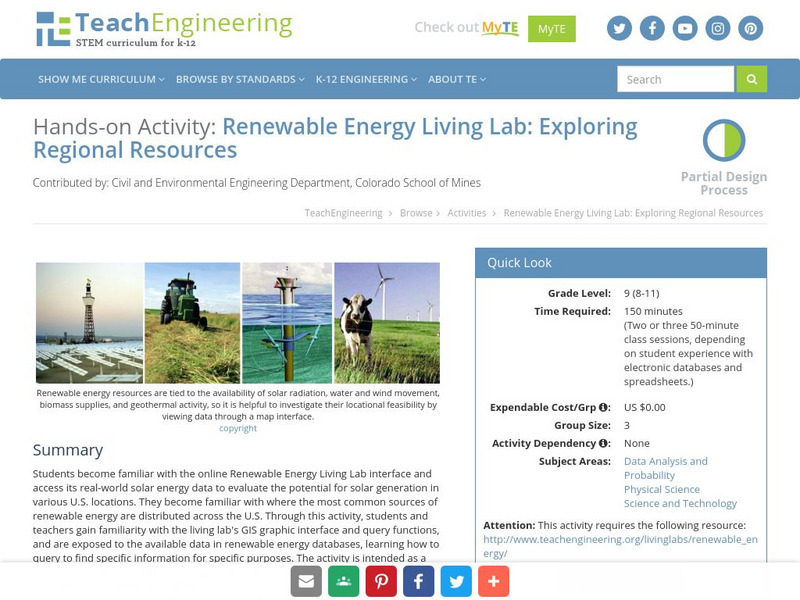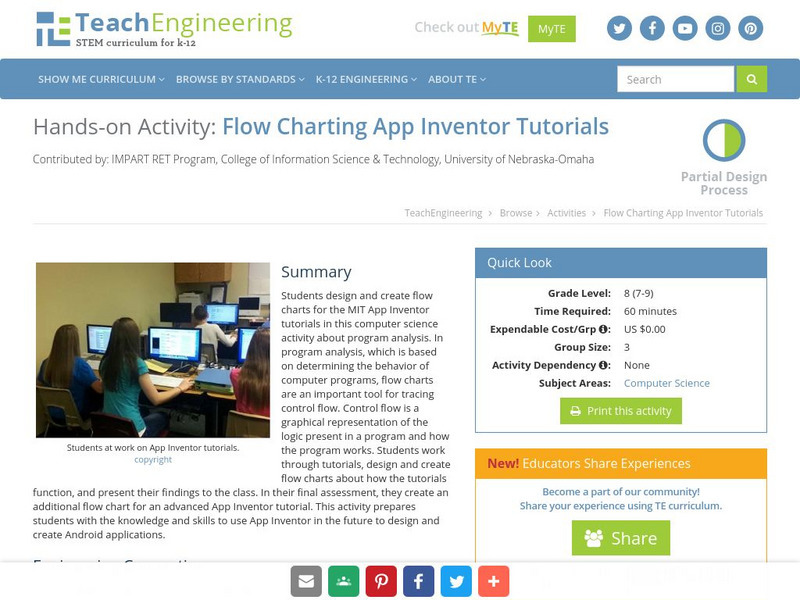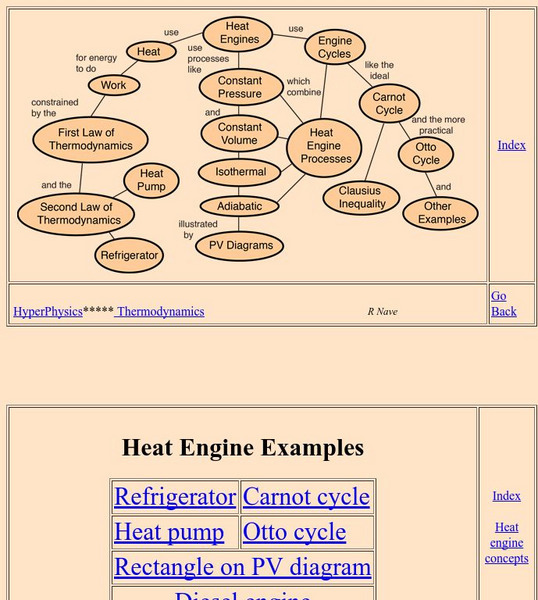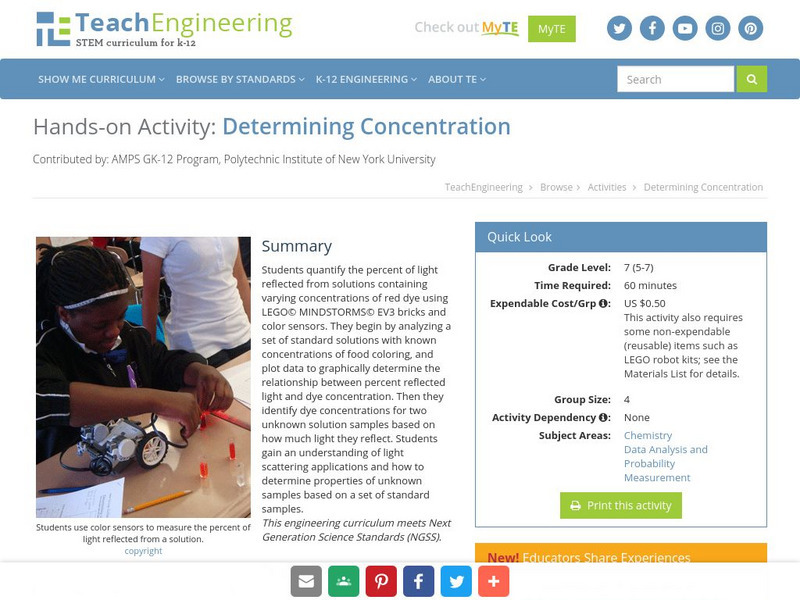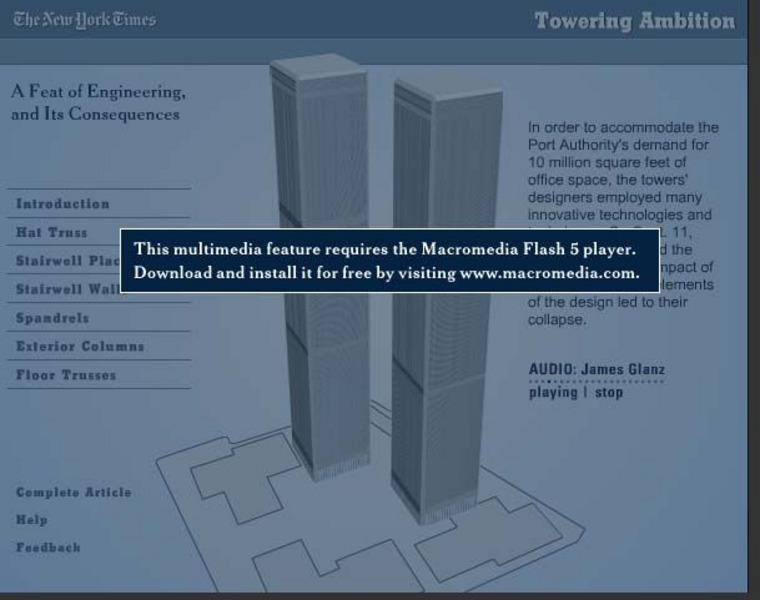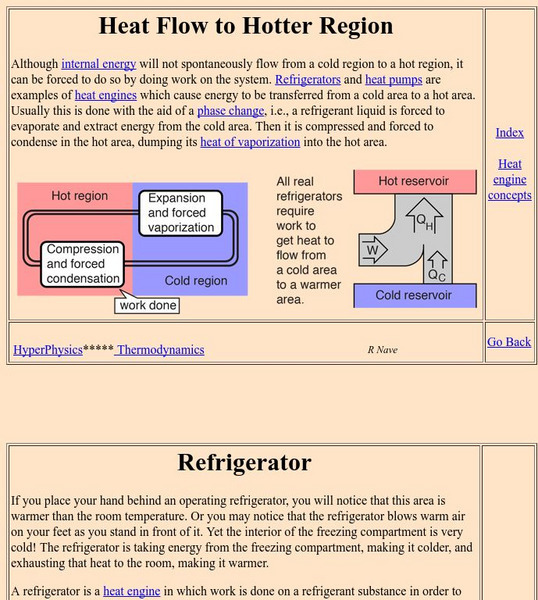Other
Ogre 3 D: Open Source Graphics Engine
This site contains information about graphics rendering and is the official Ogre 3D site.
TeachEngineering
Teach Engineering: Working Together to Live Together
Students experience civil and environmental engineering by planning a housing development in an existing biome, while also protecting the native species that live there. They conduct research, draw plans, make brochures and give...
TeachEngineering
Teach Engineering: Penny Perfect Properties (Solid Liquid Interactions)
Students investigate the property dependence between liquid and solid interfaces and determine observable differences in how liquids react to different solid surfaces. They compare copper pennies and plastic "coins" as the two test...
TeachEngineering
Teach Engineering: Renewable Energy Living Lab
Students become familiar with the online Renewable Energy Living Lab interface and access its real-world solar energy data to evaluate the potential for solar generation in various U.S. locations. They become familiar with where the most...
TeachEngineering
Teach Engineering: Start Networking!
To get a better understanding of complex networks, students create their own, real social network example by interacting with their peers in the classroom and documenting the interactions. They represent the interaction data as a graph,...
TeachEngineering
Teach Engineering: Flow Charting App Inventor Tutorials
Students design and create flow charts for the MIT App Inventor tutorials in this computer science activity about program analysis. In program analysis, which is based on determining the behavior of computer programs, flow charts are an...
TeachEngineering
Teach Engineering: Program Analysis Using App Inventor
In computer science, program analysis is used to determine the behavior of computer programs. Flow charts are an important tool for understanding how programs work by tracing control flow. Control flow is a graphical representation of...
Georgia State University
Georgia State University: Hyper Physics: Heat Engine Concepts: The Otto Cycle
Schematic diagrams illustrating the operation of a four-stroke engine cycle. Interactive buttons allow you to step through the various steps of each engine cycle. Each graphic is accompanied by an excellent explanation.
Georgia State University
Georgia State University: Hyper Physics: Heat Engine Cycle
The heat engine cycle is defined and discussed. So pressure-volume diagrams are introduced and their use in depicting the cycles of a heat engine is demonstrated. Informative graphics are accompanied by reason-filled explanations.
Georgia State University
Georgia State University: Hyper Physics: Heat Engine Concepts
An indexing page for the HyperPhysics site. The page contains a concept map of links to a variety of other pages which discuss concepts related to heat engines. All pages contain informative graphics and excellent explanations.
TeachEngineering
Teach Engineering: Determining Concentration
Students quantify the percent of light reflected from solutions containing varying concentrations of red dye using LEGO MINDSTORMS NXT bricks and light sensors. They begin by analyzing a set of standard solutions with known...
TeachEngineering
Teach Engineering: Graphing Equations on the Cartesian Plane: Slope
The lesson teaches learners about an important characteristic of lines: their slopes. Slope can be determined either in graphical or algebraic form. Slope can also be described as positive, negative, zero or undefined. Students get an...
National Health Museum
Access Excellence: Graphics Gallery of Biotechnology
This site provides simple diagrams on all major topics in cell biology, genetics and biotechnology.
Other
Smith College: Heron's Steam Engine
From the Smith College Museum of Ancient Inventions website. Description of Heron's invention of the aeolipile - a precursor to the steam engine. Includes a graphic depicting a replica of the device.
Other
Nye Thermodynamics: Basic Gas Turbine Theory
Outstanding information (and a lot of it) on gas turbine (jet) engines. Describes the history behind their development and the theory behind their operation. Well written and includes very informative graphics.
Georgia State University
Georgia State University: Hyper Physics: Heat and Thermodynamics
Georgia State University Physics Department privides an incredibly thorough treatment of the laws of thermodynamics. Multiple pages; many informative graphics; opportunities to practice problems and receive immediate feedback.
Curated OER
History of the Steam Engine
From the Engines of Ingenuity web site. A lengthy page discussing ingenuity and invention as it pertains to steam engine history. Very anecdotal and interesting. Includes biographical information and interesting details about Hero of...
Curated OER
History of the Steam Engine
From the Engines of Ingenuity web site. A lengthy page discussing ingenuity and invention as it pertains to steam engine history. Very anecdotal and interesting. Includes biographical information and interesting details about Hero of...
New York Times
New York Times: How the Towers Stood and Fell
A multimedia graphic explains how certain structural elements of the World Trade Center helped to delay its collapse when it was attacked on September 11, 2001, whereas other elements probably sped up the towers' fall.
Colorado State University
Colorado State Univ.: Heat Transfer Resistance Modeling
This site from the Colorado State University discusses the tranfer of heat by conduction and convection. Discussion centers around the application of these two heat transfer mechanisms to engines. The variables that effect the resistance...
University of Virginia
University of Virginia: Corliss Steam Engine
This essay from the University of Virginia provides an incredible graphic of the Corliss steam engine as shown at the America's Centennial Exposition, held in Philadelphia in 1876. Includes some descriptive text.
Other
Ductile Iron Society: Ductile Iron Data for Design Engineers
From the Ductile Iron Society web site. Data for the elasticity and strength of ductile iron are discussed. The effect of temperature upon yield strength, elongation (i.e., strain), and ultimate tensile strength are represented in...
Khan Academy
Khan Academy: What Are 3 D Shapes?
This Khan article explains how to write your own 3D graphics engine with some trigonometry!
Georgia State University
Georgia State University: Hyper Physics: Heat Flow to Hotter Region
Heat flow from a hot region to a cold region is described and explained. Applications of this phenomenon (specifically heat pumps and refrigerators) are discussed. Excellent graphics.
